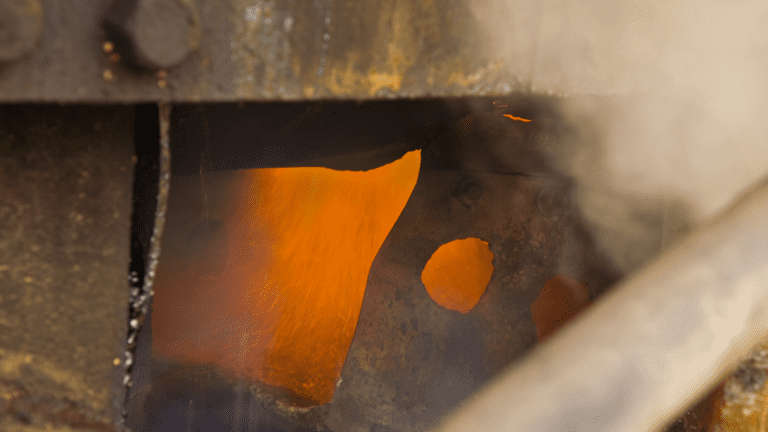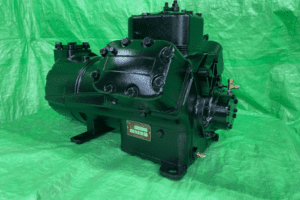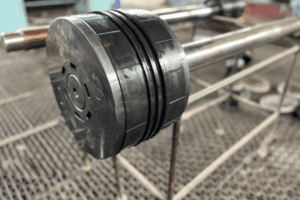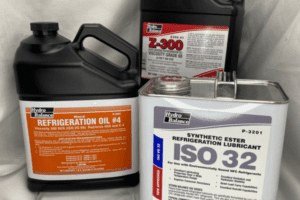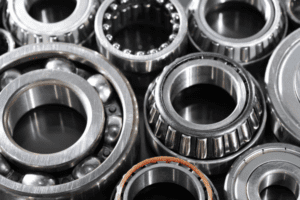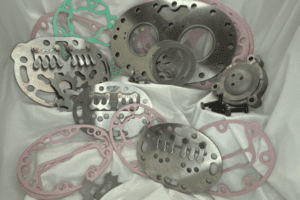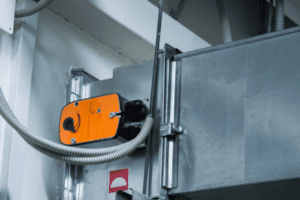Like so many other pieces of sensitive industrial equipment, compressors are designed to come to a stop before they break down completely. If a compressor overheats or trips a breaker, it gives you a golden opportunity to troubleshoot before a repair turns into a replacement.
This is especially true of today’s advanced compressors that use onboard sensors to monitor the whole operating environment. But, even with this extra layer of protection, the real world can hide some nasty tricks up its sleeves. You should take any unusual compressor behavior as a serious sign.
Compressor overheating is a common event that can strike in the industrial environment as well as a home or small business. In many cases, it is one of the easiest compressor issues to solve. But it’s best if you know exactly where to seek out the possible root of the problem.
Before you spend a lot of time evaluating your compressor from top to bottom, look at these likely suspects instead:
1. Insufficient or Incorrect Refrigerant
The refrigerant is the #1 thing to take stock of when your commercial compressor is overheating. A modern industrial compressor may be able to run for a short period of time with a low level of refrigerant, but it comes with a high potential for damage as it contends with the massive heat load from the condenser.
Refrigerant problems can go undiagnosed for a long period of time because their effects tend to be gradual, especially when you are dealing with an HVAC system. The first sign of a refrigerant shortfall is usually lukewarm air in some parts of the system and overall failure to reach the target temperature.
In most systems, refrigerant is not refilled very frequently, and you might feel as if you just did it. But a relatively small leak can quickly zap your refrigerant and result in a performance decrease. After a while, an overheating compressor is an obvious endpoint.
If you’ve read our blog before, you know we always recommend having certain spare parts at the ready to meet your emergency compressor maintenance needs. The same thing can be said when it comes to refrigerants. But how much is too much for your refrigerant “emergency stash”?
It’s not out of the ordinary to have three times more refrigerant on hand than you expect to need. This was common as recently as a few years ago, as businesses wanted to use up their HFC stockpiles before switching to the next generation formulas.
2. Dirty Condenser Coils
The average semi-hermetic compressor is protected from the environment by a metallic housing, but it’s still important to make sure there are no pollutants that may infiltrate it. Not all parts of the system are quite as well defended as the compressor itself, and the condenser is a possible point of fault.
When the condenser coils are dirty, the refrigerant can’t absorb heat as efficiently. The compressor will work harder to compensate and eventually overheat. If you’ve checked your refrigerant levels and they seem fine, this is the next possibility to cross off your list.
3. Other Maintenance Issues
Depending on your application, review your maintenance checklist:
Maintenance is broken down into daily, weekly, monthly, quarterly, and annual tasks. If you’re following a detailed maintenance plan, you should also have documentation to let you know when each matter is attended to. Anything that’s been delayed or overlooked could be the ultimate source of your overheating.
Most commercial compressor owners discover that documentation for their compressor unit is scant to non-existent, and this includes when it comes to maintenance. Be careful about where you source your maintenance information. Look to trusted professional sources, not reputable online forums.
If you have a remanufactured commercial compressor, you should be able to reach out to the team that provided it for detailed guidance on keeping your whole system working efficiently. On top of overheats, poor performance and rising electricity usage can both be signs you need additional maintenance work.
When All Else Fails, Be Sure You Have a Remanufactured Commercial Compressor in Reserve
It’s essential to get down to the real cause of a compressor problem or failure. If the mystery is left unsolved, the exact same outcome could be waiting in the wings for your next compressor.
Still, the best way to truly be prepared for anything is to make sure you have easy access to a new compressor. A remanufactured commercial compressor gives you the option to source a reliable, comprehensively tested compressor at a fraction of the cost of an OEM wholesaler.
A remanufactured commercial compressor undergoes a rigorous engineering process that lets qualified pros identify and replace any damaged components, then test to verify your system will uphold the standards you expect for another 8-10 years.

